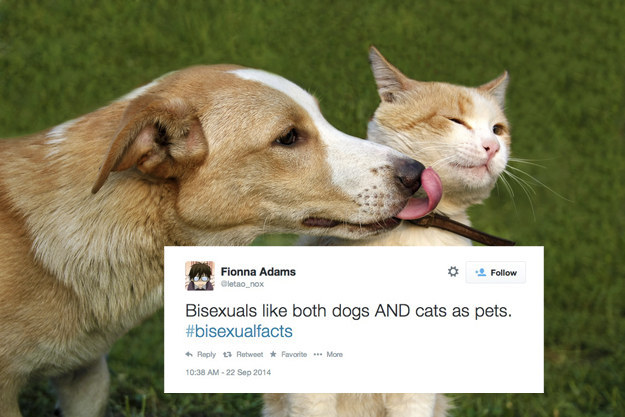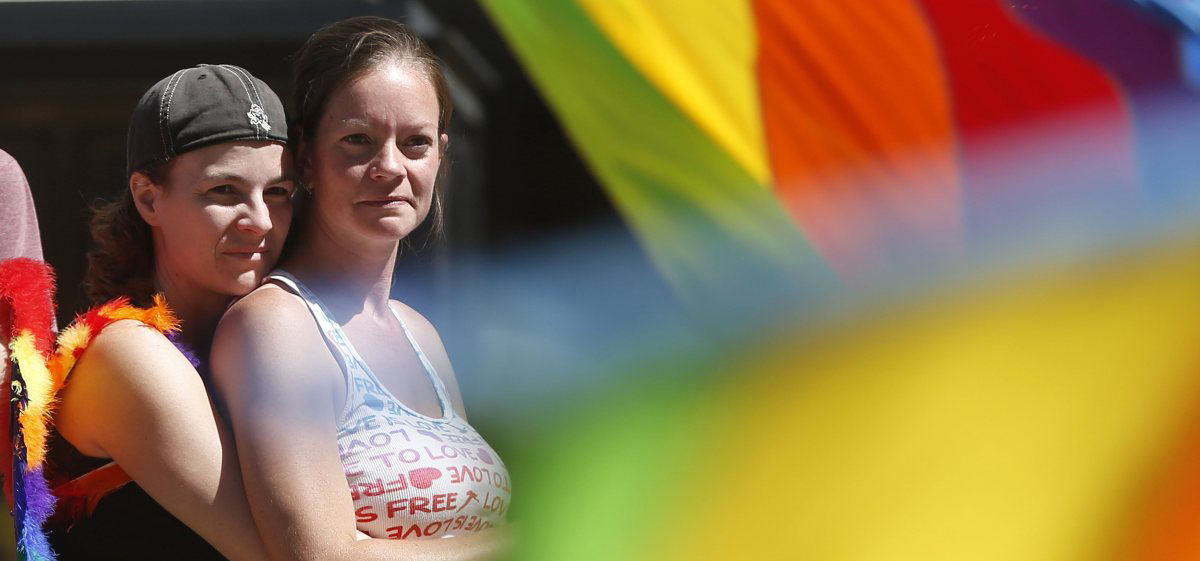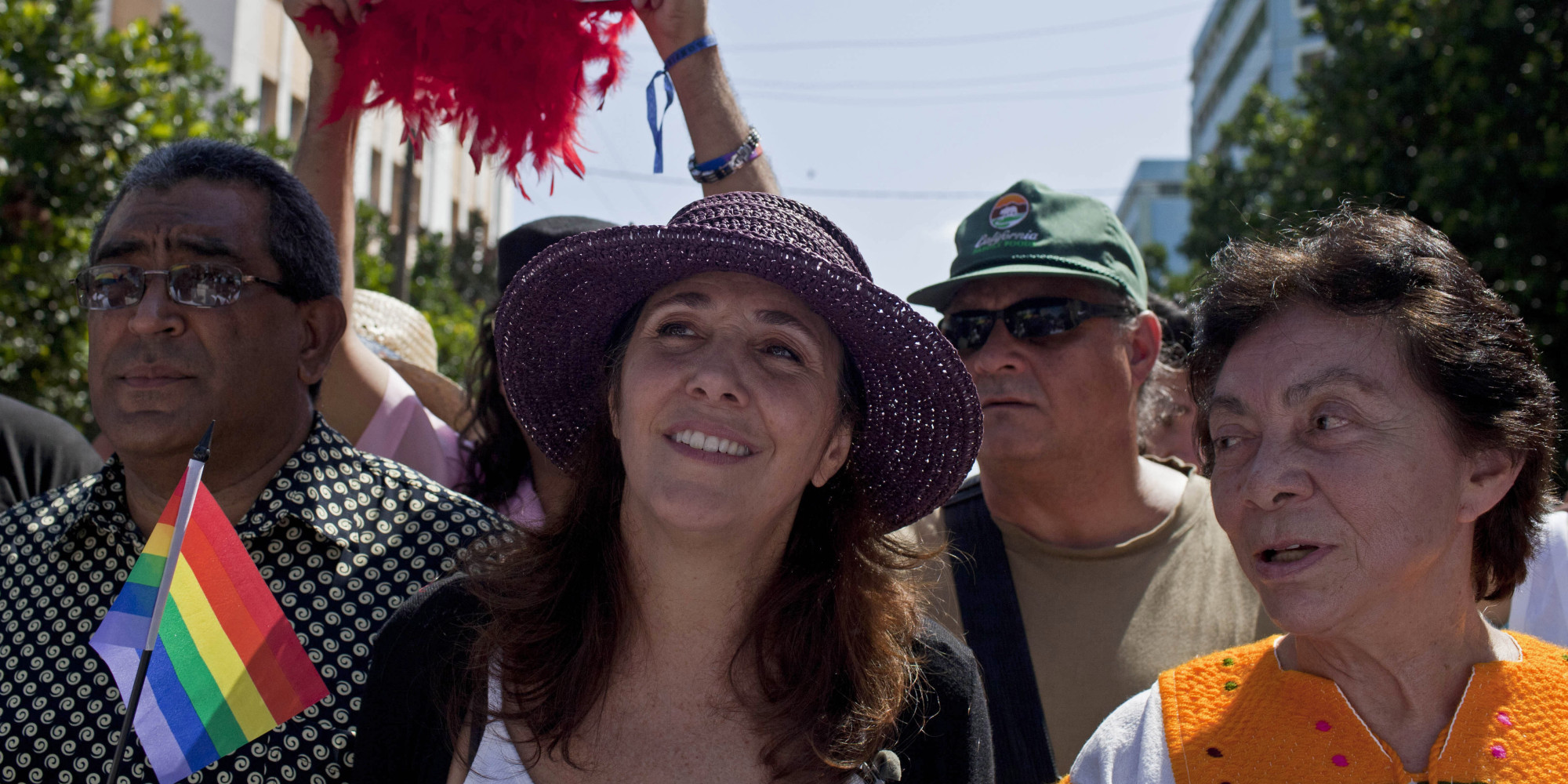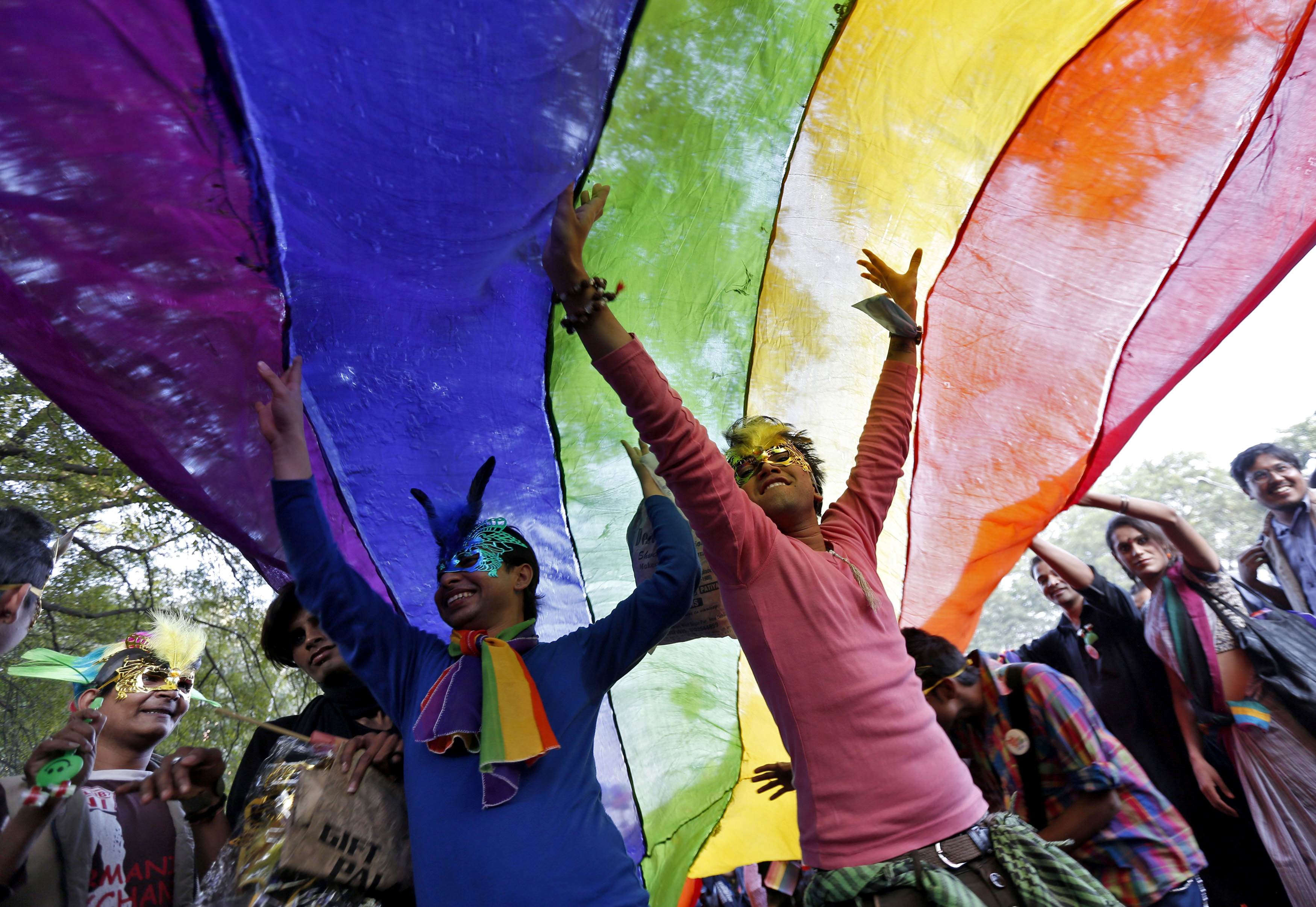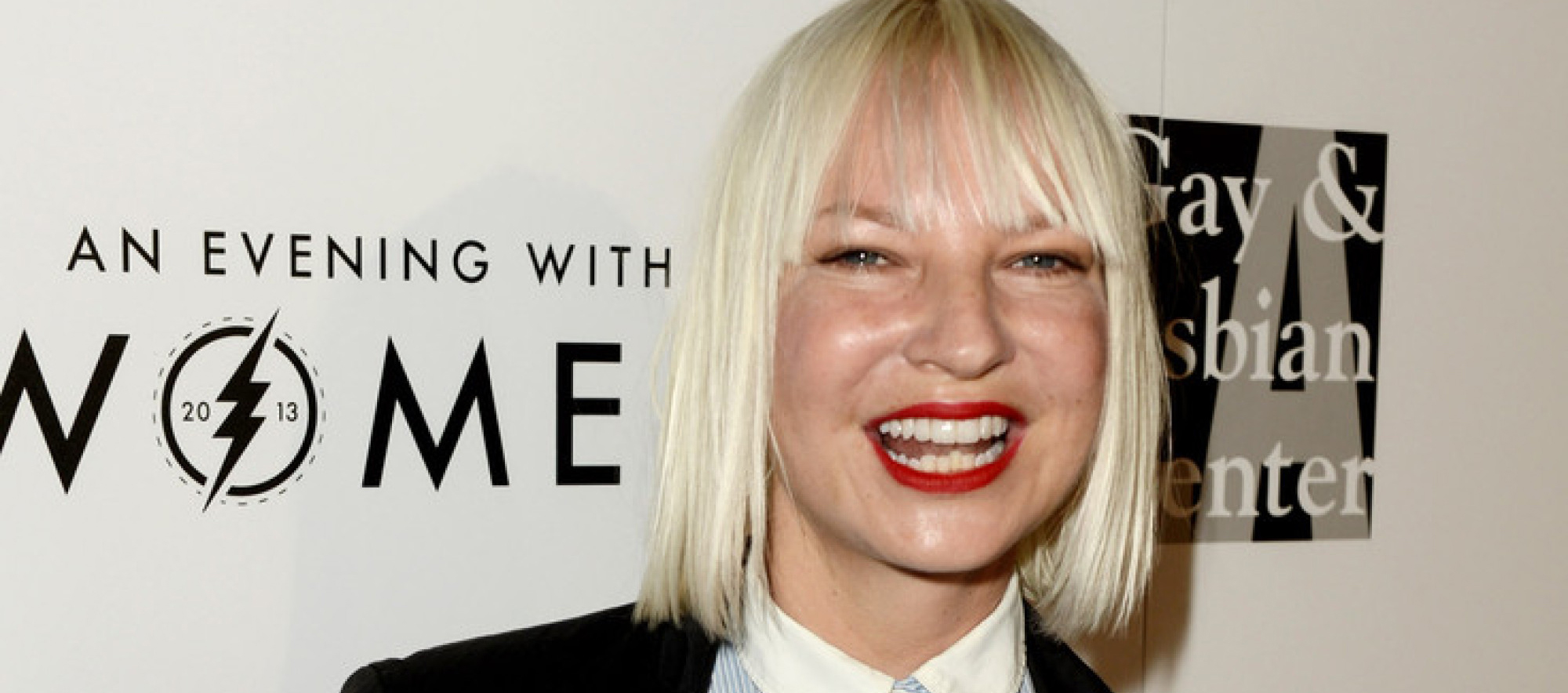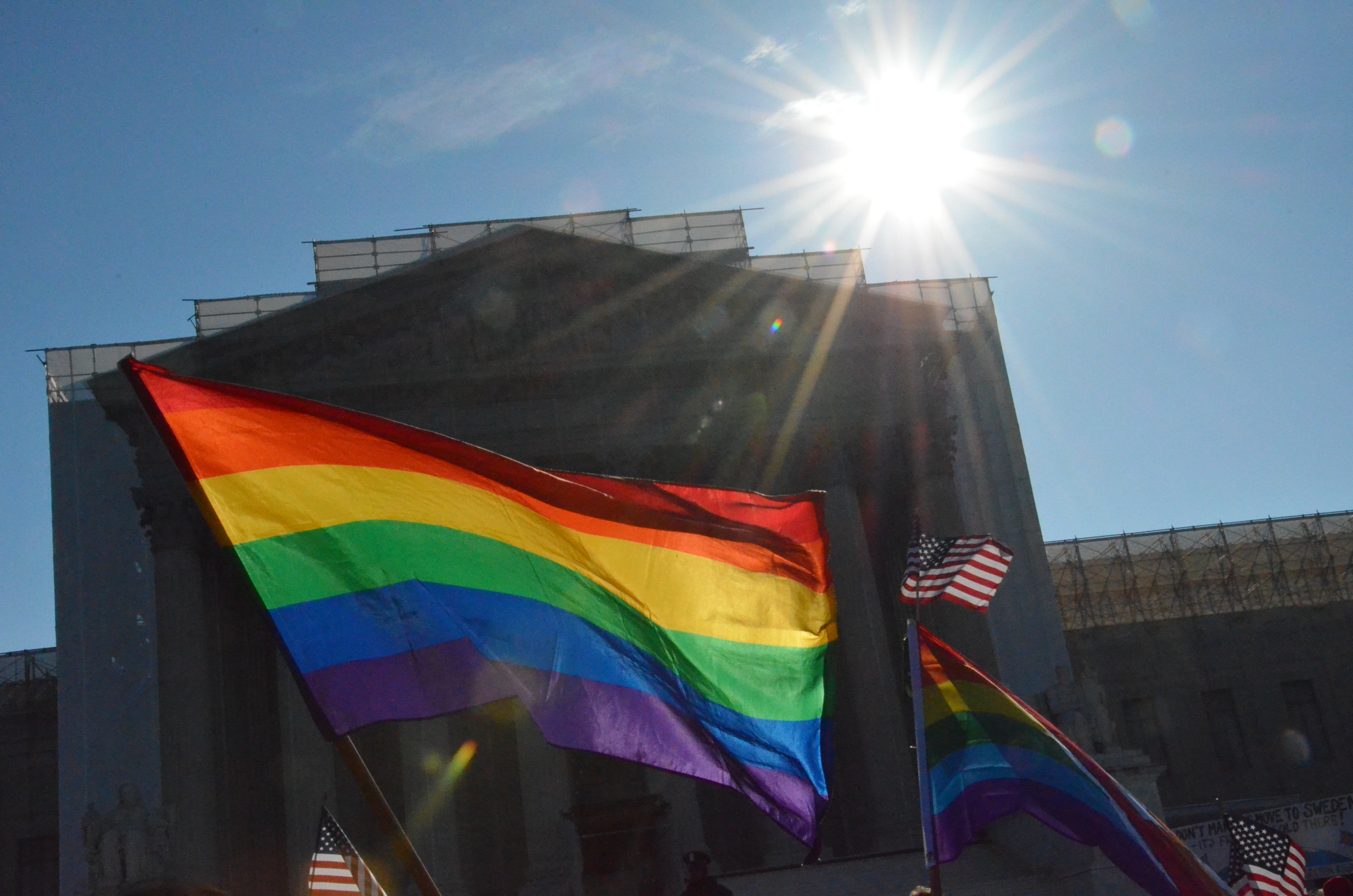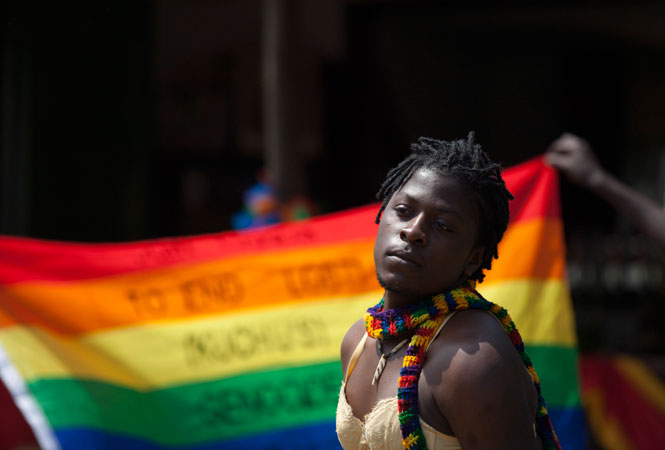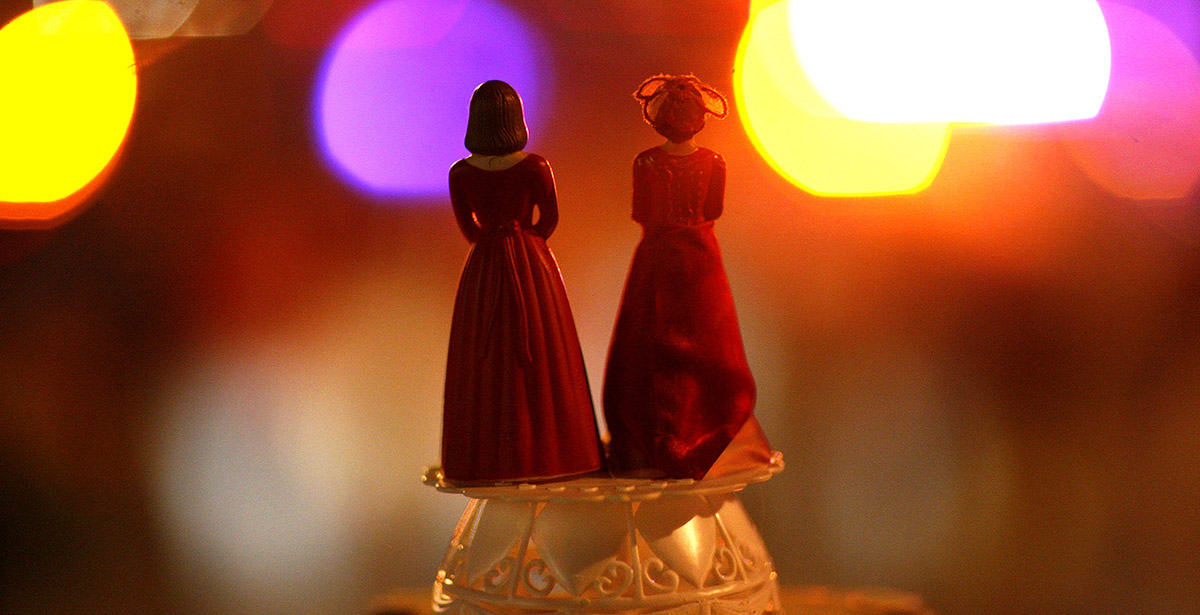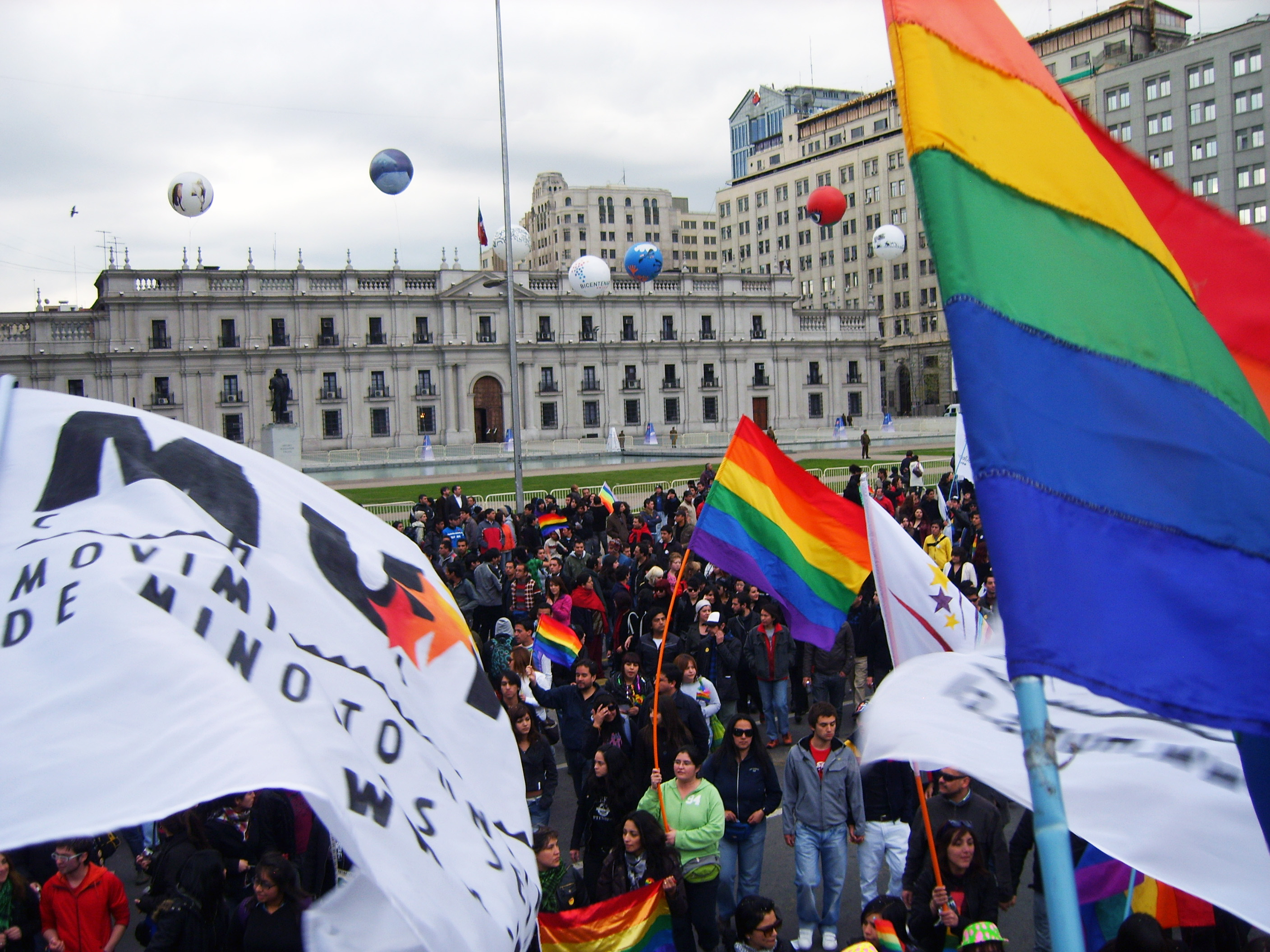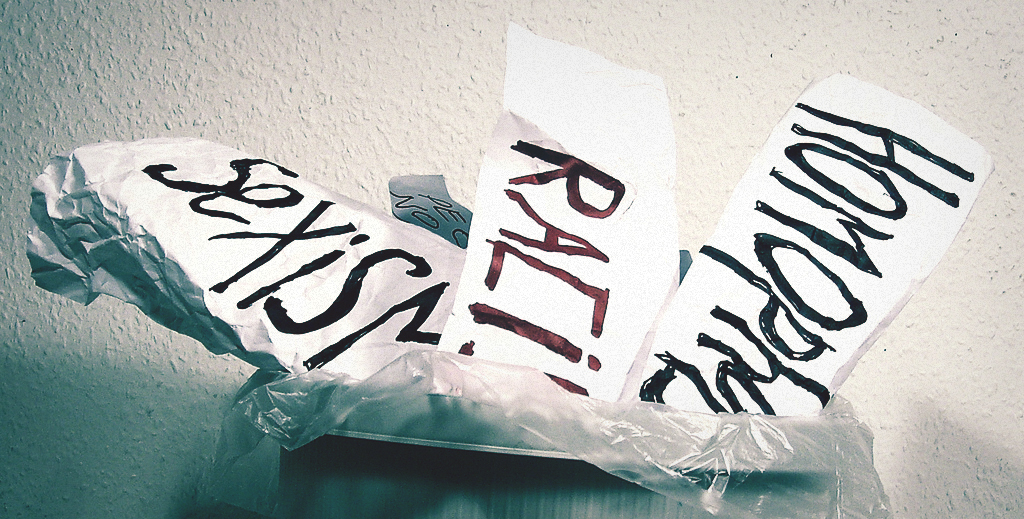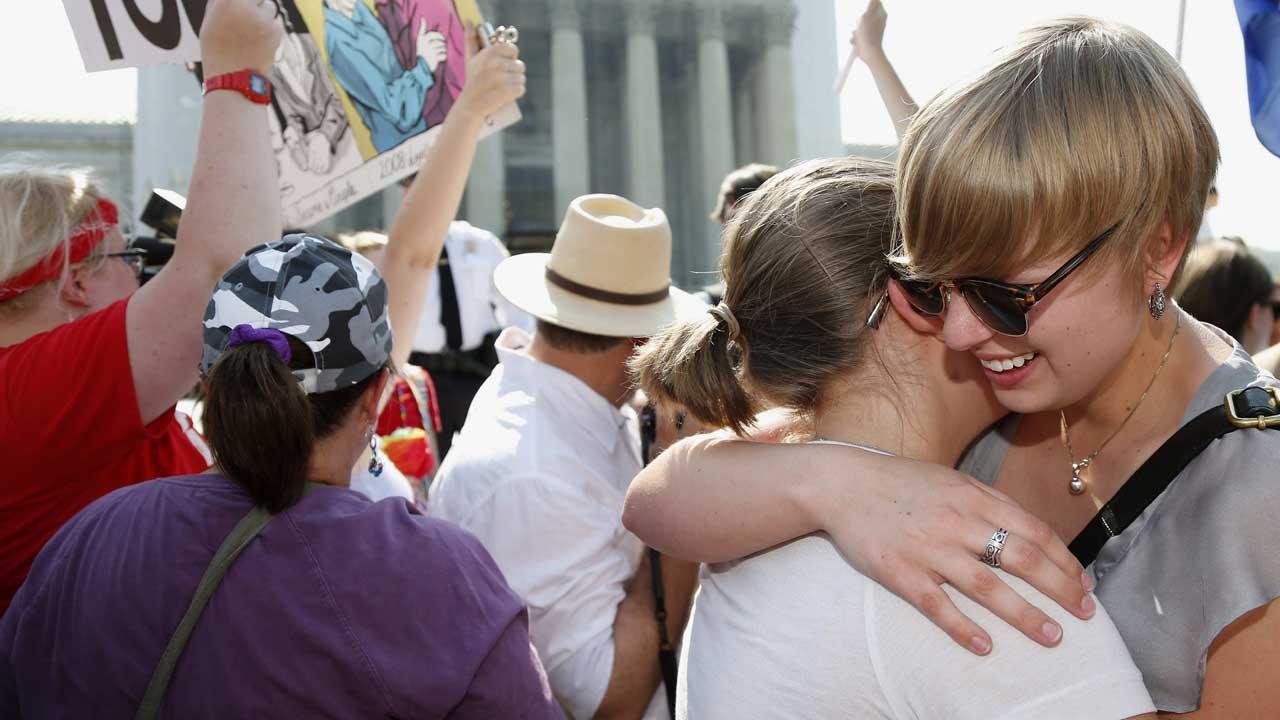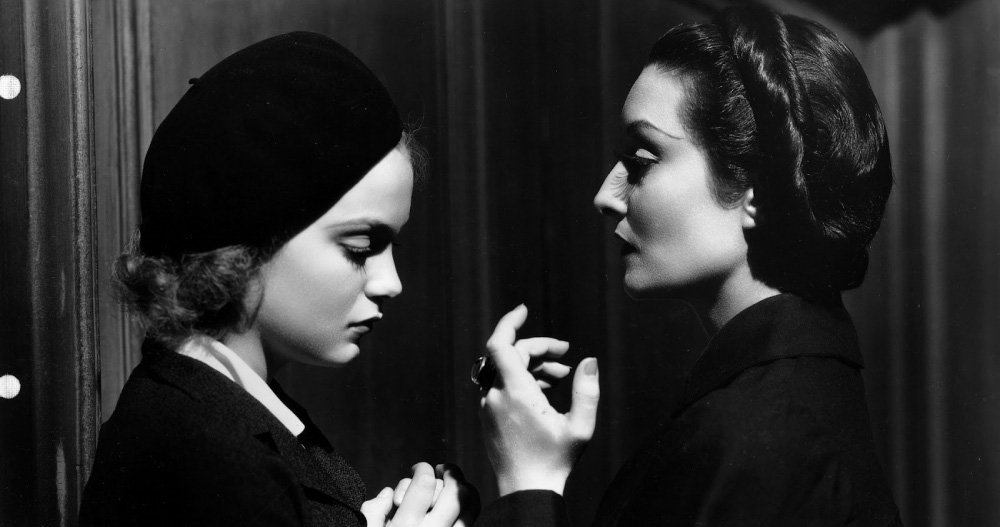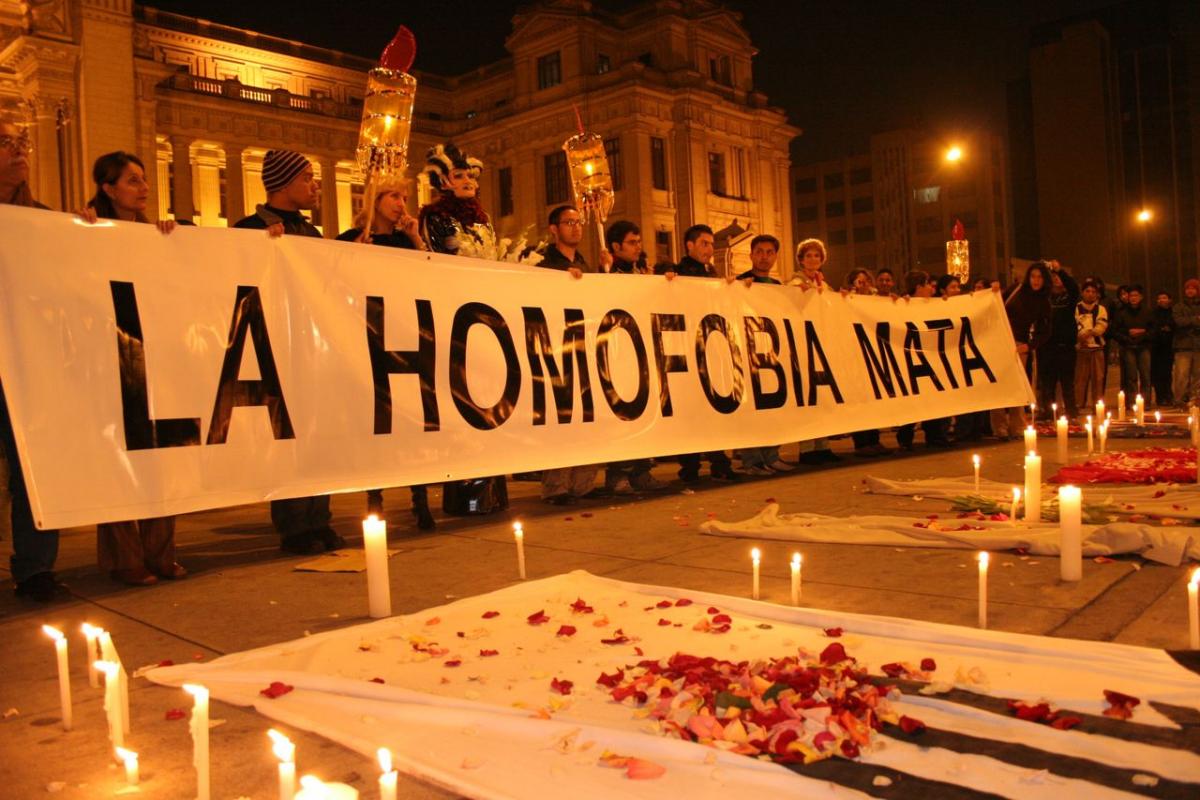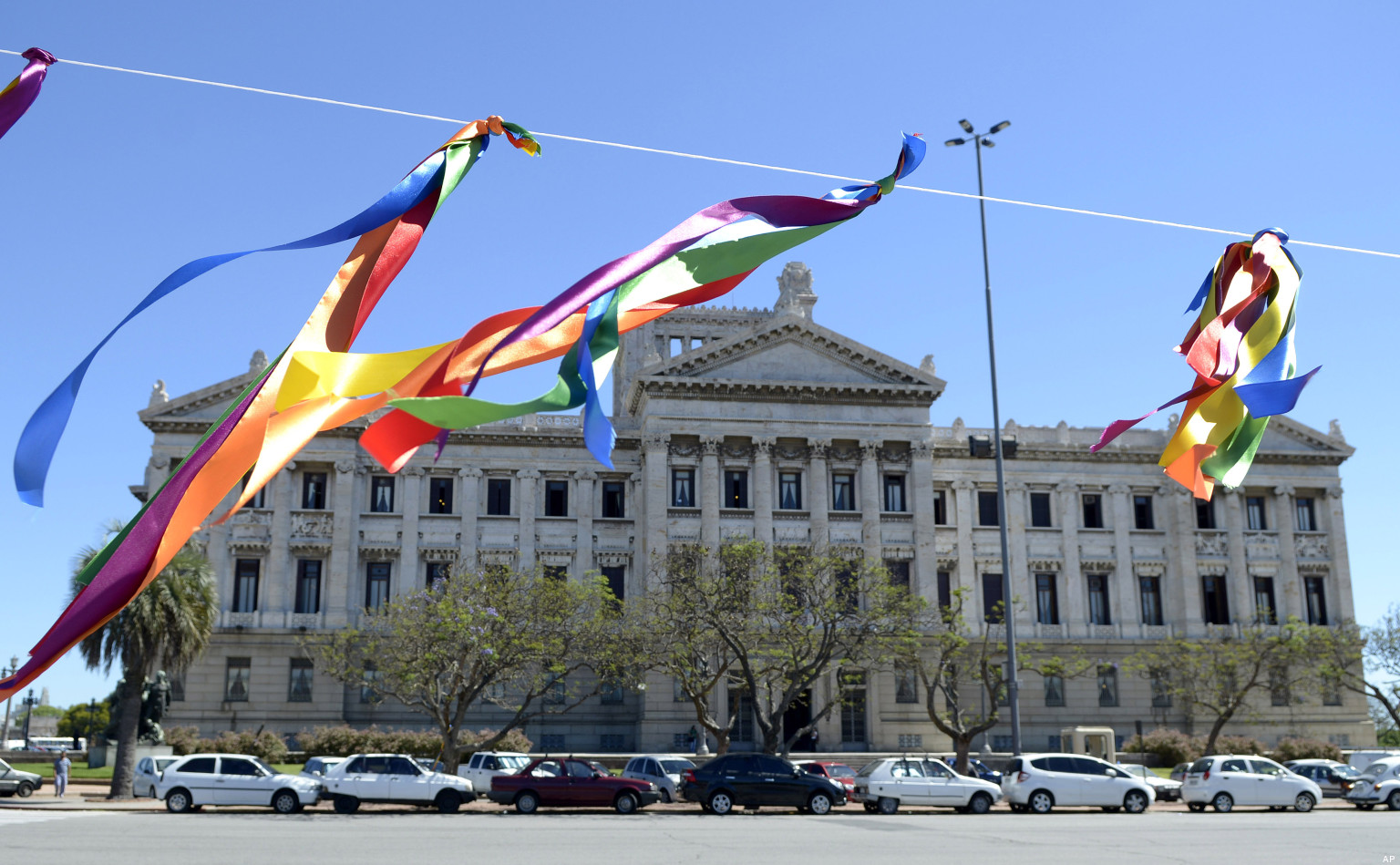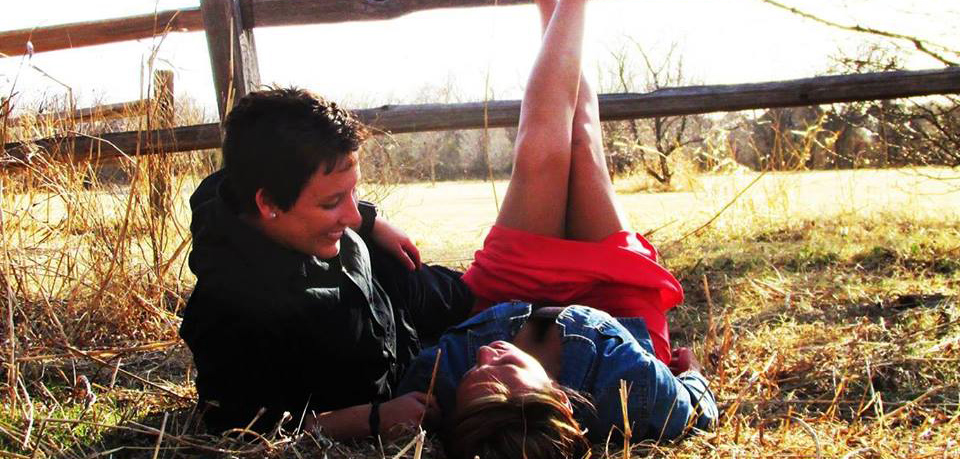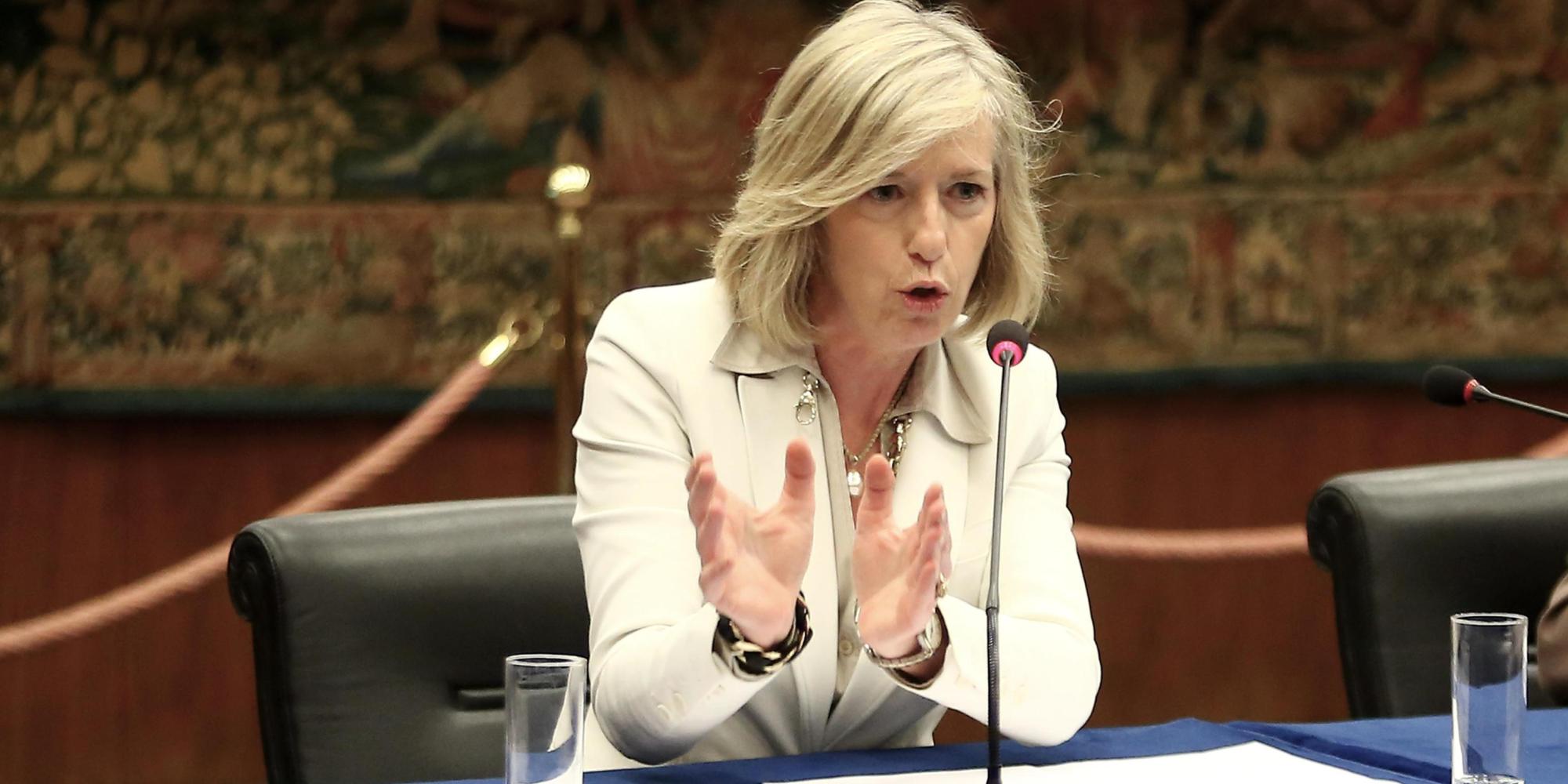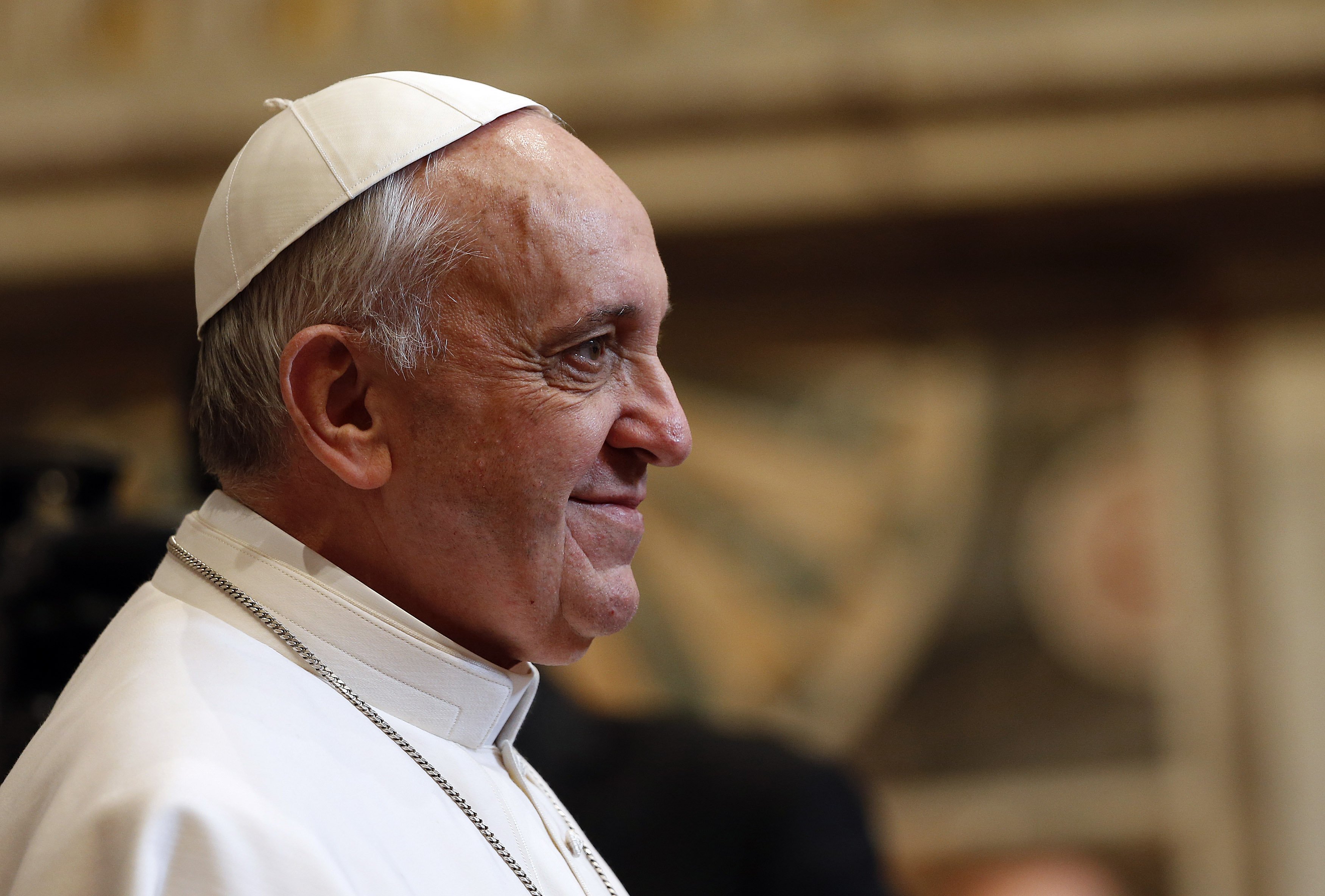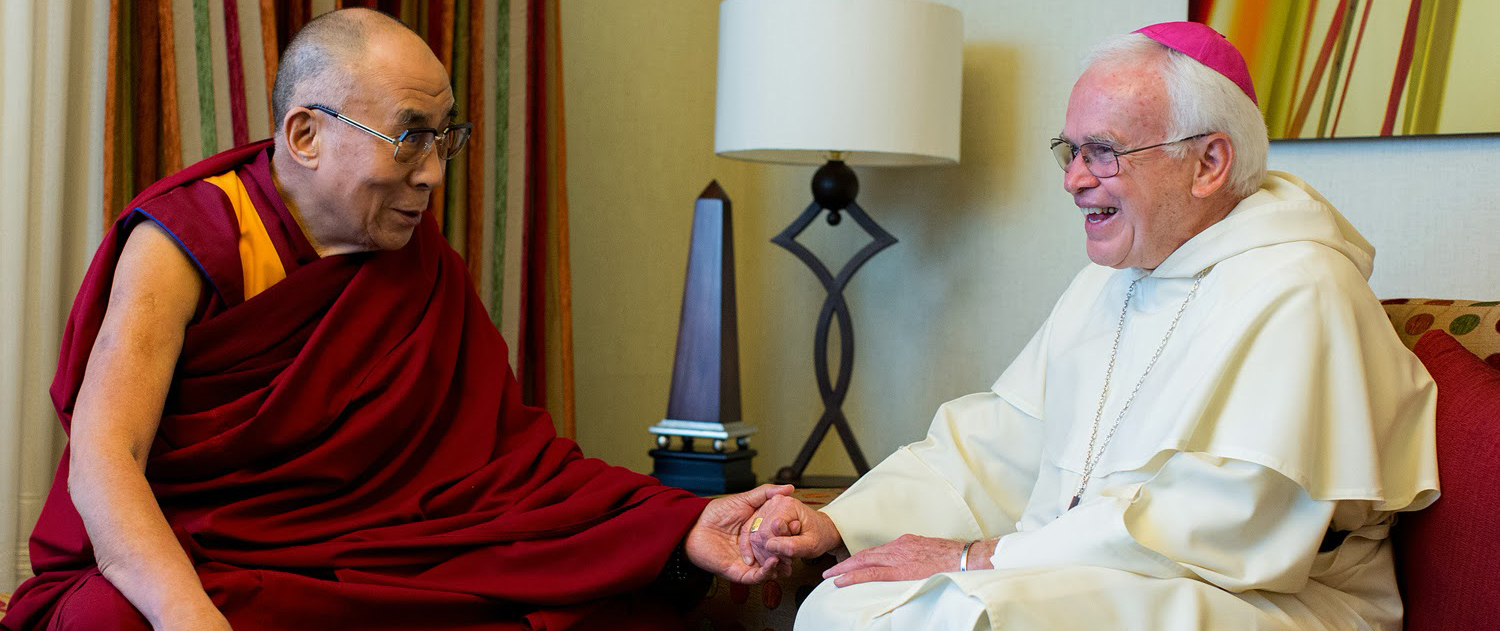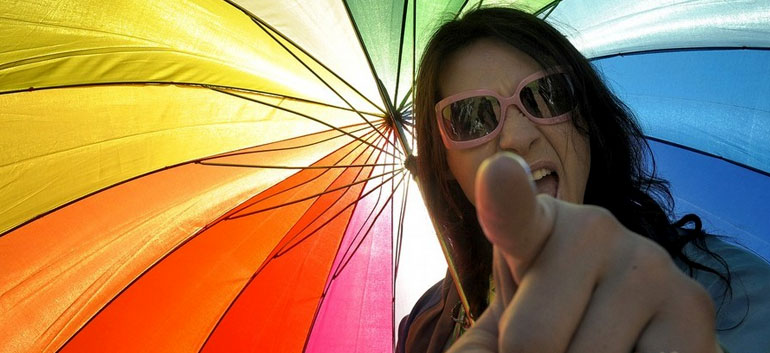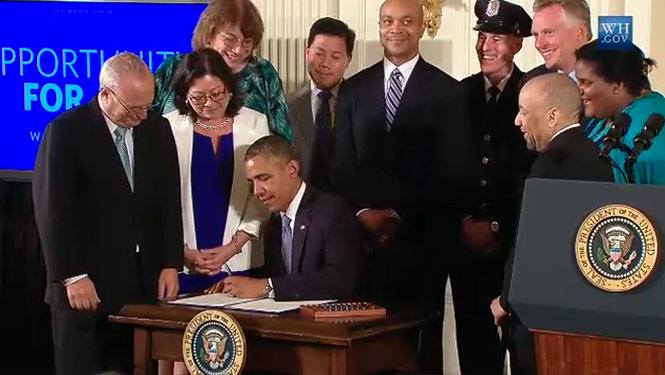Federal appeals judges bristled on Tuesday at arguments defending gay marriage bans in Indiana and Wisconsin, with one Republican appointee comparing them to now-defunct laws that once outlawed weddings between blacks and whites.
As the legal skirmish in the United States over same-sex marriage shifted to the three-judge panel of the 7th U.S. Circuit Court of Appeals in Chicago, more than 200 people lined up hours before to ensure they got a seat at the much-anticipated hearing.
While judges often play devil’s advocate during oral arguments, the panel’s often-blistering questions for the defenders of the same-sex marriage bans could be a signal the laws may be in trouble – at least at this step in the legal process.
Richard Posner, who was appointed by President Ronald Reagan in 1981, hit the backers of the ban the hardest. He balked when Wisconsin Assistant Attorney General Timothy Samuelson repeatedly pointed to “tradition” as the underlying justification for barring gay marriage.
“It was tradition to not allow blacks and whites to marry – a tradition that got swept away,” the 75-year-old judge said. Prohibition of same sex marriage, Posner said, derives from “a tradition of hate … and savage discrimination” of homosexuals.
Attorneys general in both states asked the appellate court to permanently restore the bans, which were ruled unconstitutional in June. Its ruling could affect hundreds of couples who married after lower courts tossed the bans and before those rulings were stayed pending the Chicago appeal.
Gay marriage is legal in 19 states as well as the District of Columbia, and advocates have won more than 20 court victories around the country since the U.S. Supreme Court ordered the federal government to recognize state-sanctioned gay marriages last year.
The Supreme Court has yet to take up a case, but Utah and Oklahoma’s cases were appealed to the high court and Virginia’s attorney general also has asked the justices to weigh in. Appeals court rulings are pending for Kentucky, Michigan, Ohio and Tennessee, while appellate court hearings are scheduled next month for Hawaii, Oregon, Idaho, Nevada and is expected soon in Texas.
Posner, who has a reputation for making lawyers before him squirm, cut off Indiana Solicitor General Thomas Fisher, just moments into his presentation and frequently chided him to answer his questions.
At one point, Posner ran through a list of psychological strains the children of unmarried same-sex couples suffered, including having to struggle to grasp why their schoolmates’ parents were married and theirs weren’t.
“What horrible stuff,” Posner said. What benefit to society in barring gay marriage, he asked, outweighs that kind of harm to children?
“All this is a reflection of biology,” Fisher answered. “Men and women make babies, same-sex couples do not… we have to have a mechanism to regulate that, and marriage is that mechanism.”
Samuelson echoed that, telling the hearing that regulating marriage – including by encouraging men and women to marry – was part of a concerted Wisconsin policy to reduce numbers of children born out of wedlock.
“I assume you know how that has been working out in practice?” Judge David Hamilton responded, citing figures that births to single women from 1990 to 2009 rose 53 percent in Wisconsin and 68 percent in Indiana.
While the judges seemed to push defenders of the bans the hardest, they also pressed the side arguing for gay marriage to say just where they themselves would draw the line about who could and couldn’t marry.
Would they argue in favor of polygamy on similar grounds, by pointing to the emotional toll on children in families with multiple mothers or fathers, asked Judge David Hamilton, a President Barack Obama appointee.
“If you have two people, it’s going to look like a marriage,” said Kenneth Falk of the American Civil Liberties Union of Indiana. “If you have three or four, it doesn’t. … There’s no slippery slope.”
Among those following the arguments in court was plaintiff Ruth Morrison, a retired Indianapolis Fire Department battalion chief. She said that because Indiana won’t recognize the woman she married in another state as her wife, she wouldn’t be able to pass on pension and other benefits if she dies.
“Now Indiana tells us our promises are only good if our spouses are of the opposite sex,” Morrison, wearing a fire department uniform, said during a rally ahead of the hearing Monday night.
A voter-approved constitutional amendment bans gay marriage in Wisconsin. State law prohibits it in Indiana. Neither state recognizes same-sex marriages performed elsewhere. The lawsuits that led to Tuesday’s hearing in Chicago contend that the bans violate the U.S. Constitution’s equal protection guarantee.
Despite the seriousness of the hearing, there was some levity.
At one point, a visibly uncomfortable Samuelson struggled to offer a specific reason for how gay marriage bans benefit society. He then noted a yellow courtroom light was on signaling his allotted time was nearly up.
“It won’t save you,” Judge Ann Claire Williams, a Bill Clinton appointee, told him, prompting laughter in court.
Samuleson smiled, and said: “It was worth a try.”
